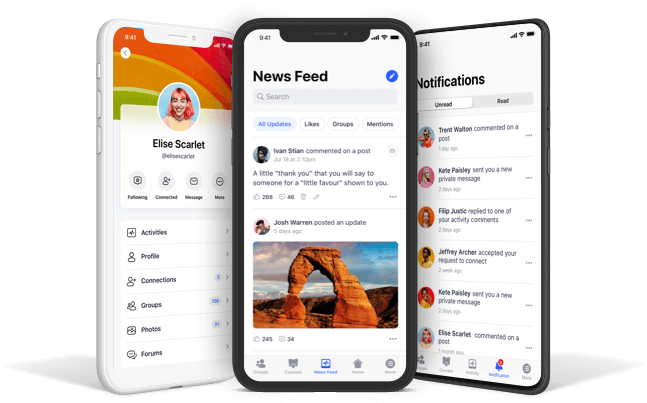In a world dominated by two mobile operating systems that are practically equally important, choosing the right mobile development strategy can present a dilemma for many individuals and businesses.
Should you choose a native app with a great user interface and experience, or web or hybrid apps that can be more cost-effective, and quicker to develop and deploy?
To help you get the big picture, let’s briefly review what a native app is. We will also discuss how it is different from a web app or a hybrid mobile app. We’ll then consider why React Native is a powerful solution to this problem.
What is a native app?
Native apps are programs that are written to run on a specific platform such as Android or iOS. As these apps are developed with a specific platform in mind, they can usually take advantage of features that are specific to such operating systems.
Native apps will only run on the platforms for which they are built. This means that if a developer plans to target multiple platforms, theoretically, separate apps that provide virtually the same functionality will have to be created.
It is easy to see how this can end up being very time consuming and cost-intensive. Fortunately, workarounds exist and the more popular ones include web apps, hybrid apps, and cross-platform native apps.
Web apps are programs that can be accessed over the internet with a web browser. They’re just like websites, only they provide added functionality and interactivity. These apps don’t need to be downloaded and thus, can run on any device, regardless of the operating system.
Hybrid apps are, basically, a combination of both approaches. They are apps that can be downloaded and installed on different platforms but are built with web development languages such as HTML, CSS, and Javascript. These apps run in a container called a Webview, which simply acts as a mini-browser within your app.
Cross-platform development, on the other hand, allows for the simultaneous development of native apps for different platforms. Let’s take a look at why native apps are the preferred option compared to these alternatives, and how React Native offers developers the best of both worlds.
Advantages of Native Apps
Native applications are the ideal choice for app development in most cases as they are usually faster, more responsive, reliable, and feature packed. It is also easier for native apps to tap into device functionality such as the camera, compass, microphone, and swipe gestures. Also, push notifications can be employed easily with native apps.
However, as we mentioned earlier, native apps will require that code be written separately for each platform. Thus, they can take longer to develop and cost more – a lot more. $150,000 is a very realistic ballpark.
This is where React Native comes in.
What React Native Is, and Why It’s a Powerful Solution
React Native is one of the most popular cross-platform development frameworks that allows you to create native apps for Android and iOS with just one codebase. React Native apps are really native apps, not web or hybrid apps. Thus, they benefit from the above-mentioned benefits of native apps.
React Native, which was created by Facebook, allows app developers to create these native mobile apps with the popular Javascript programming language.
Thus, you can hire a single developer or development team to create native apps that run on both Android and iOS. React Native also cuts down on development time significantly.
With a number of big companies such as Facebook and Tesla making use of React Native for mobile app development, it certainly is one of the better solutions for creating high-quality native apps that provide users with a great experience.
Enter AppBoss. Want a React Native app at an insanely affordable price? Then apply here for a free Mobile Learner Platform Assessment.









